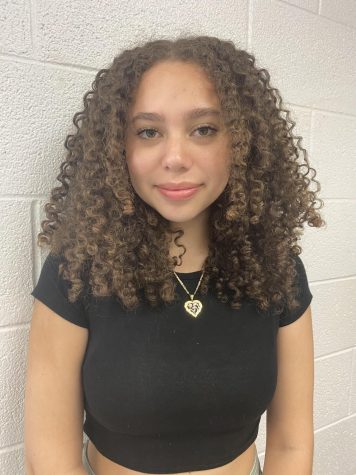NEW SCHOOL YEAR, NEW EXPERIENCE
Photo courtesy of Inverness
Teenager receiving education through Schoology
With a new school year, students, teachers, and parents have had to adapt to a new way of learning. Not only must they figure out how to navigate virtual learning, but they were also gifted with a new program called Schoology that provides tools for teachers and students to supply new academic content. However, all of this new material has sprouted confusion, frustration, and negative feelings for many teachers and parents — since Google Classroom was a widely appreciated platform that many felt was already well-known and easier to administer.

Schoology is being utilized in multiple pilot schools such as Langley, Edison, West Springfield, Westfield, and even elementary and middle schools. Pilot schools are being asked to use Schoology instead of Blackboard and Google Classroom for as many student assignments and classroom communications as possible.
Fairfax County Public Schools claims that they switched to Schoology because it is, “a hub for learning that allows for high student engagement, allows teachers to create real time communication, and is convenient for virtual parent participation groups like the PTA.”
Although FCPS chose to adopt Schoology this summer, as a company, Schoology has been around since 2009.
Margret Sisler, technology specialist at Westfield High School, stated, “It was designed as a Learning Management System for K-12 schools. Most learning management systems were built for colleges, so this was unique.”
Throughout the 2020-21 schoolyear, pilot schools will collaborate with the central office staff to help identify best instructional practices, serving as a resource for their region. Teachers at Westfield are having mixed feelings about Schoology, as they continue to learn its intricacies.
Brittany Burke, ASL teacher at Westfield High School, opined, “I have complicated feelings…I think a big challenge that they have right now is that it is a new way of education with our virtual learning and on top of that they have a new learning management system, so it makes things that are already complicated, even more complex.”
Additionally, Aaron Sulkin, English teacher at Westfield, remarked, “I like it, but I miss Google Classroom because I liked how it worked, I think it is a lot more intuitive, easier to use due to the fact that it utilizes the same technology framework that they are used to using in our daily lives, so switching to Schoology was a little bit harder even though it has more functionality.”
On the other hand, parents seem to be more in favor of Schoology. Parents believe it is better arranged and more thought out than the spring version of online learning.
According to Gina Hamilton, Westfield High School parent, “Schoology is better than whatever was being used in the spring. It seems more organized and attractive.”
Amy Yang, parent, likewise observed, “Schoology is a good learning platform for the kids; it is more organized and efficient then Google Meet or Blackboard.”
In the spring of the last school year, schools utilized Blackboard and Google Classroom for online learning. While it was challenging to adapt while dealing with a pandemic, students and teachers were still comfortable with the Google Classroom system, since it was more familiar.
Despite this, Schoology does have more features than previous programs. It contains an assessment platform with over 15 types of assessment questions, and takes the features they used in Google Classroom — such as making copies of each Google assignment for each student, organizing assignments and posts, and easy feedback for teachers and students. It offers several more benefits as well.
Sisler noted that, “Schoology has what they call ‘integrations’ with other products, like DBQ Online and Horizon that will allow these systems to work together. Right now they have limited integrations because they are beginning the pilot, but over time there are plans to turn more of these on, which will allow us to use more of our digital resources with much more ease.”
This is Westfield’s first school year employing Schoology, so it has created difficulties in virtual classrooms, whether it be turning things in or finding assignments.
Sisler communicated some frustration with Schoology by saying, “It’s been tricky because in a normal year, if something didn’t work, we’d be able to switch to paper or hand out a copy of something or write on the board.”
Sisler added, “This year, they had to make sure it worked on day 1 and that students and teachers could get in to see each other because it was our classroom learning space, it was the location of our learning and that was a lot of pressure!”
Currently, pilot schools are relentlessly trying to figure out what is working and what is not for Schoology, so that they can create the best learning environment for students. The experience and feedback gained will be beneficial, considering this kind of learning gives information to the school division and lets them know what will work when all schools use Schoology next year.

Hi my name is Dayanna, I'm a senior and Co-editor in chief of the newspaper. I love listening to music and watching movies.




